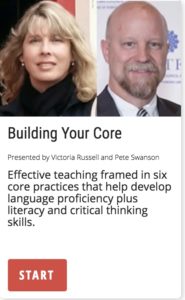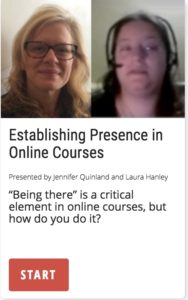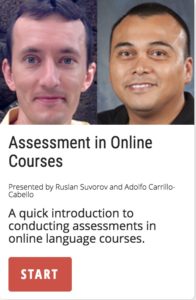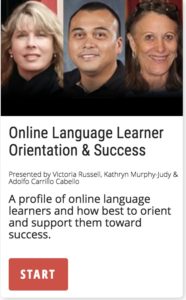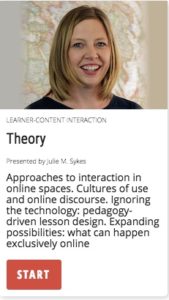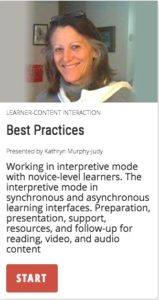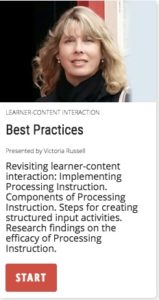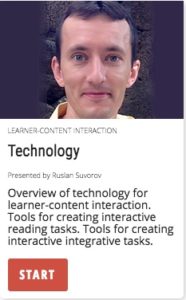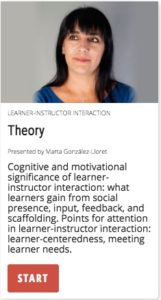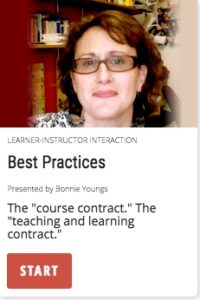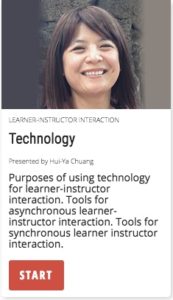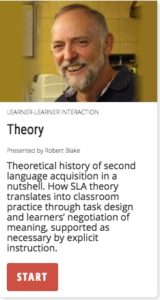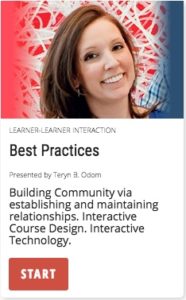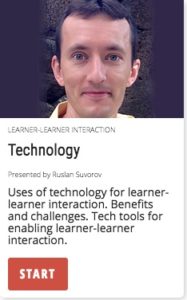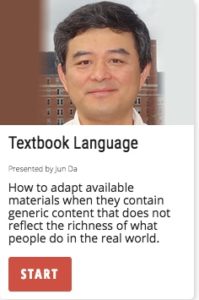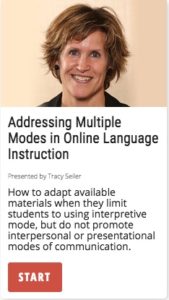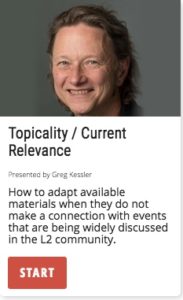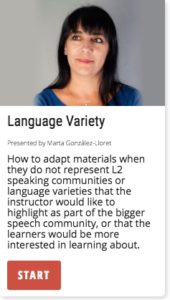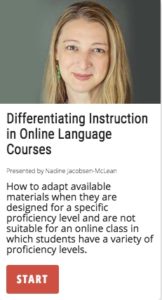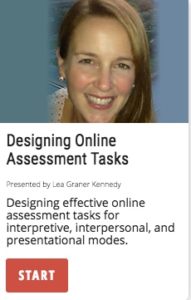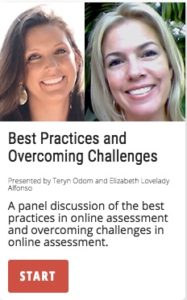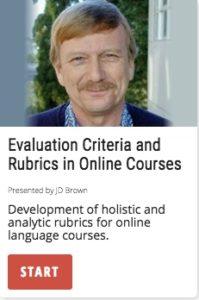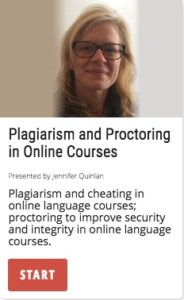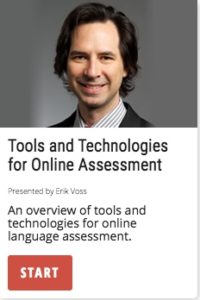Resources developed for the ACTFL DL SIG / NFLRC Mentoring Program for Online Language Teachers
Lauren Rosen has been an active mentor for the ACTFL DL SIG program since it’s pilot. If you are a CLP instructor in need of taking a course in online language teaching, this is an option for you. Please let Lauren know so she can help you get started in choosing the modules that will best meet your needs.
For those choosing to complete the modules in conjunction with the Redesign Grant, you will need to complete a minimum of 9 modules. Plan approximately 1 hour per module.
Introduction to Online Language Teaching
This first set of lessons was designed and developed through a collaboration between the NFLRC and ACTFL’s Distance Learning (DL) Special Interest Group (SIG). The curriculum that guided this project was collaboratively developed by members of the ACTFL DL SIG and the NFLRC team and was informed by years of work in this area made available through the BOLDD Collaboratory. The NFLRC contributed its expertise in instructional design and technology and provided logistical support.
Designing Interaction for Online Language Learning
The following lessons were developed by the National Foreign Language Resource Center in partnership with the North Carolina Virtual Public School. Designed for in-service teachers of world languages in online environments, these lessons focus on four types of interaction that take place in online language courses. While interaction is important in any online course, it deserves special attention in language courses, since communicative interaction is key to developing proficiency in a language.
The three types of interaction explored in these lessons include:
- Learner-content interaction
- Learner-instructor interaction
- Learner-learner interaction
For each of the types of interaction, three perspectives are explored:
- Theory associated with each type of interaction
- Best practices in each type of interaction
- Technologies that support each type of interaction
Learner-Content Interaction
Learner-Instructor Interaction
Learner-Learner Interaction
Materials Development
The following lessons on materials development were developed by the National Foreign Language Resource Center in partnership with the North Carolina Virtual Public School. The content of these lessons was collaboratively created by professionals with knowledge about online materials development. These lessons focus on various scenarios in which an online instructor would need to create new materials or adapt existing materials in order to best meet the online language learners’ needs.
Note: The original videos in this series were edited down by the UW System Collaborative Language Program and the TED Ed modules were expanded to meet the professional development needs of UW System online language educators. The edited version of the videos is available on the UWCLP YouTube Channel.
Assessment
The following lessons on assessment were developed by the National Foreign Language Resource Center in partnership with the North Carolina Virtual Public School. The content of these lessons was collaboratively created by professionals with knowledge about online assessment. These lessons focus on various issues of assessment in online language courses.

This work is licensed under a Creative Commons Attribution-NonCommercial 4.0 International License.
The learning module contents were created and shared by the National Foreign Language Resource Center (NFLRC), University of Hawai‘i at Mānoa.


